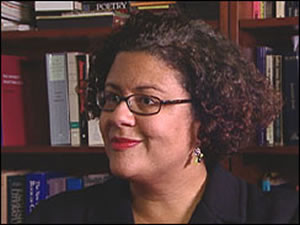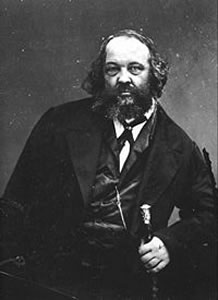De Amerikaanse dichteres en schrijfster Elizabeth Alexander werd geboren op 30 mei 1962 in New York. Zie ook mijn blog van 30 mei 2008 en ook mijn blog van 30 mei 2009 en ook mijn blog van 30 mei 2010.
Fugue
1. Walking (1963)
after the painting by Charles Alston
You tell me, knees are important, you kiss
your elders’ knees in utmost reverence.
The knees in the painting are what send the people forward.
Once progress felt real and inevitable,
as sure as the taste of licorice or lemons.
The painting was made after marching
in Birmingham, walking
into a light both brilliant and unseen.
2. 1964
In a beige silk sari
my mother danced the frug
to the Peter Duchin Band.
Earlier that day
at Maison Le Pelch
the French ladies twisted
her magnificent hair
into a fat chignon
while mademoiselle watched,
drank sugared, milky tea,
and counted bobby pins
disappearing in the thickness
as the ladies worked
in silence, adornment
so grave, the solemn toilette,
and later, the bath,
and later, red lipstick,
and later, L’Air de Temps.
My mother without glasses.
My mother in beige silk.
My mother with a chignon.
My mother in her youth.

Elizabeth Alexander (New York, 30 mei 1962)
Lees verder “Elizabeth Alexander, Countee Cullen, Alfred Austin, Emmanuel Hiel”

